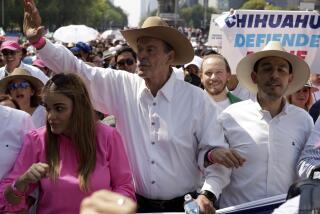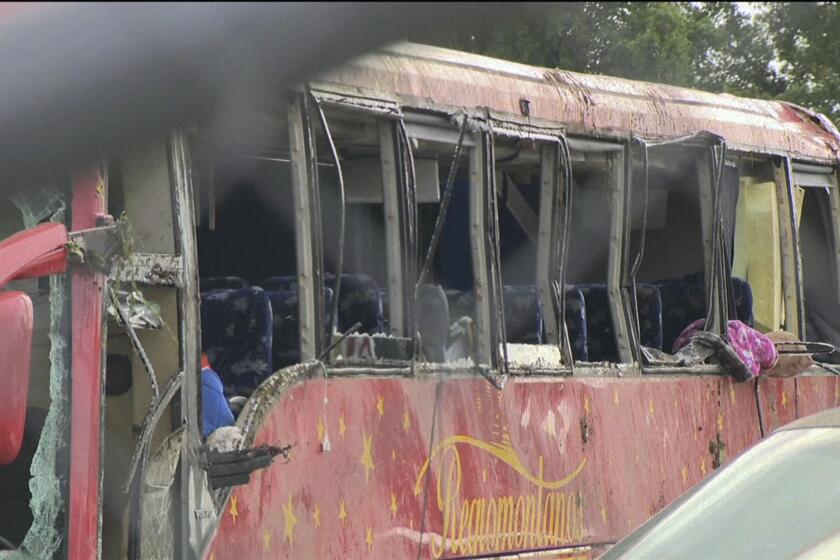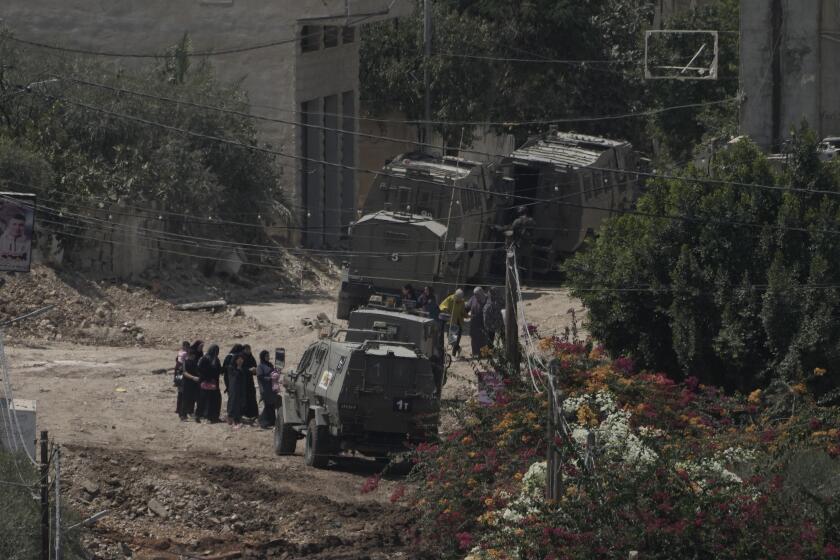Factional Feuds Tarnish S. Korea’s Reforms, Roh Says
On the eve of the fourth anniversary of his promise to “democratize” South Korea, President Roh Tae Woo recognizes that widespread reforms he has carried out still have not won much popularity for him or his ruling party.
In an interview with The Times, Roh blamed “the outmoded way of thinking of politicians,” in general, and the factional feuding within his own Democratic Liberal Party, in particular, for the low ratings that all political parties, his own included, get in opinion polls. Recent surveys have shown that none of the parties wins even as much as 20% support.
When Roh persuaded two of his 1987 presidential opponents to merge their political parties with his last year, “the entire nation welcomed the move,” he said.
But since then, as factional in-fighting among the three groups broke out into the open, “our popularity dropped by as big a margin as it had climbed with the rise of expectations (of the people) at the time of the merger,” he added.
Persisting in habits they developed during decades of authoritarian rule, politicians from his own party as well as those of the opposition remain unable to adapt to voters’ expectations, he said.
Roh, 58, also blamed politicians’ “self-serving maneuvers” to grab power and the involvement of politicians in recent scandals for “intensifying . . . public misgivings about the morality of our political circles.”
Of eight promises he made as a presidential candidate in June, 1987, to transform South Korea from authoritarian to democratic government, Roh said that the least progress has been achieved in “political circles.”
But even as “outcries about an economic crisis” swept the country, South Korea’s economy grew by 8.9%, after adjusting for inflation, in the first three months of this year, he noted. And even with polls showing less than 20% support for the ruling party, “We won 75% of the seats in . . . local elections” held March 26 for county and ward assemblies, he said.
Roh was interviewed last week just before his party won 65% of the seats contested in elections for 15 provincial and municipal assemblies.
Although Roh has recently been criticized for slowing down reform and cracking down on protest, he said he still intends to ensure that the Agency for National Security Planning, formerly the Korean CIA, stays out of politics. Once noted for manipulating the opposition, the agency no longer intervenes in politics, he said. A bill pending before the National Assembly would give the legislature the right to oversee the agency and its budget for the first time.
Roh, whose term ends in February, 1993, said his ruling party will nominate a candidate to succeed him by about next February. Roh cannot legally be a candidate to succeed himself. He insisted that he will stay out of the process: “I will not be the one to nominate the candidate of the Democratic Liberal Party. . . . He will be chosen through democratic procedures according to the party constitution.”
Whatever the outcome of the presidential election, expected to be held late next year, “it is no longer possible even to imagine military intervention in politics. . . ,” said Roh, a former army general. “There can be no force that can negate the people’s choice expressed through elections.”
Roh, who will leave for the United States next Saturday, said he wants to discuss with President Bush “new policies” that the United States is considering for northeast Asia.
He described as “meaningless” recent proposals by prominent American civilians to remove U.S. nuclear weapons from South Korea. The only meaningful way to establish the Korean Peninsula as a nuclear-free zone, he said, is for the nuclear powers of the region--the United States, China and the Soviet Union--to agree among themselves to mutually reduce nuclear weapons.
Despite predictions he has often made that Korea could be reunified by the turn of the century, Roh said that “the military threat from North Korea has not changed in any substantial way. North Korea has not altered its militant isolationism and has yet to show signs of positive change in favor of reduced tensions and durable peace on the Korean Peninsula.”
* Text of Roh interview: M3
More to Read
Sign up for Essential California
The most important California stories and recommendations in your inbox every morning.
You may occasionally receive promotional content from the Los Angeles Times.






